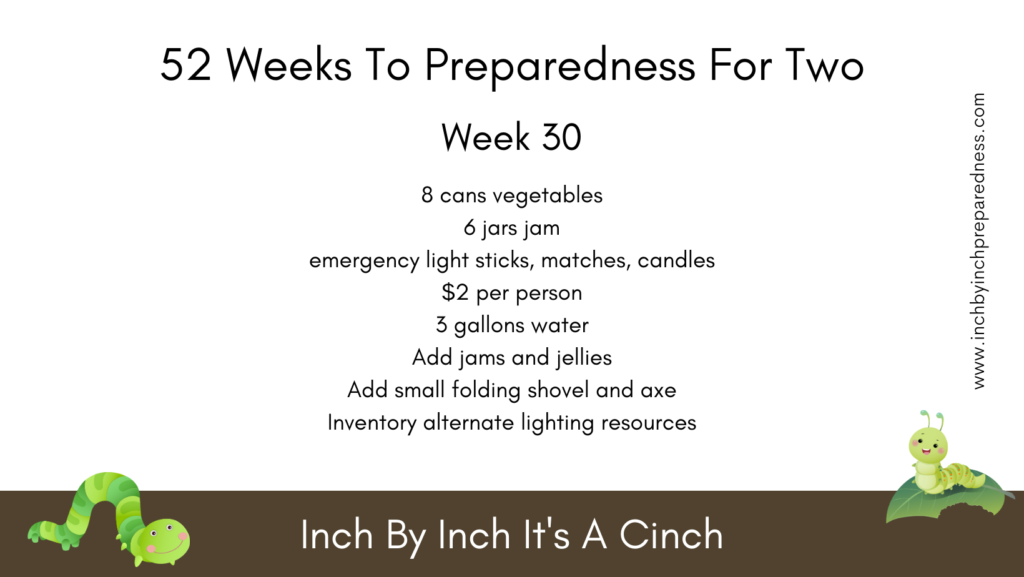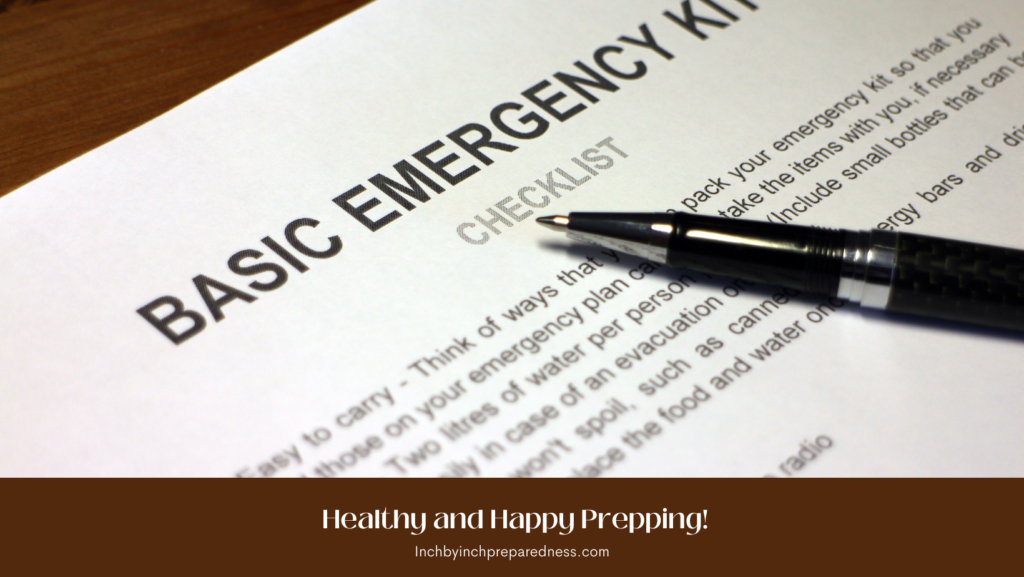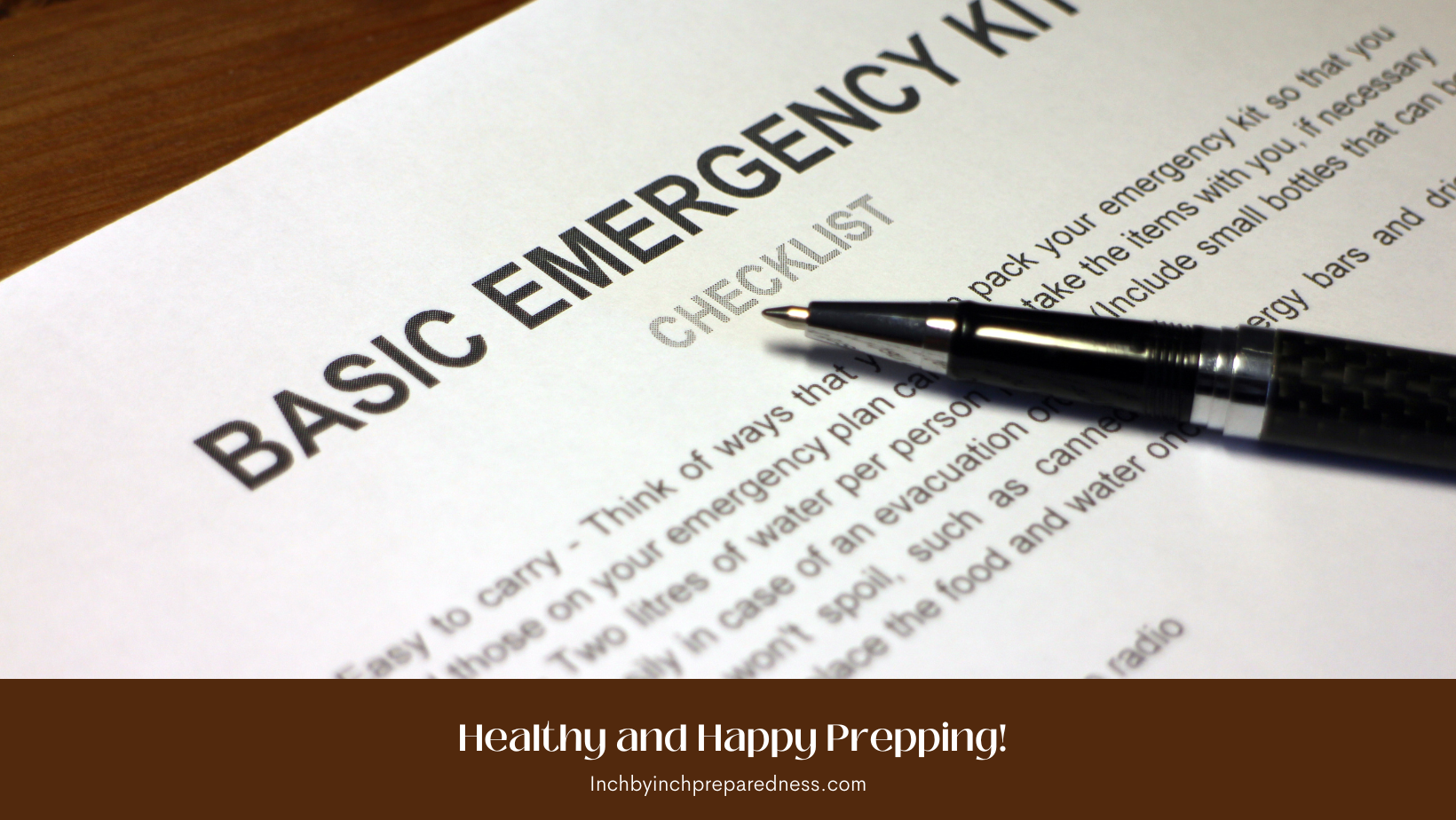How on the face of the earth could a man enjoy his religion when he had been told by the Lord how to prepare for a day of famine, when instead of doing so he had fooled away that which would have sustained him and his family. George Albert Smith

Family Gear Box:
Store some spices and seasonings that make meals tasty. Add some sugar or honey or any other types of seasonings.
Family Financial Preparation:
Along with your emergency savings funds, and getting out of debt funds, review your existing savings plan or start one. No matter what you have already or what your income, you can save something for the future. Pay tithing first and then pay yourself – even if it is only a little.
Spiritual and Faith Preparedness:
Evaluate your family scripture study and family prayer. Find your weak points and set a goal to be more diligent in these areas.

72 Hour Kit Review:
There are many types of disasters and emergencies: floods, fires, earthquakes, hurricanes and tornadoes. In many cases, a 72 hour kit could mean the difference between life and death. It is estimated that after a major disaster, it may take up to three days for relief workers to reach some areas. It would be wise to consider a 72 hour kit that you could live on for 7 – 10 days. In such a case, if you live in a disaster prone area a 72 hour kit is the minimum you should have available. Plan your 72 hour kit according to your family’s size.
Your kit should be in a portable container located near an exit of your house or even, sheltered in your backyard.
Each family member should have their own 72 hour kit with food, clothing and water. Distribute heavy items between kits.
Enclose the extra clothing, matches, personal documents, and other items damageable by smoke or water in plastic to protect them.
Keep a light source in the top of your 72 hour kit, so you can find it quickly in the dark.
Personalize your kit. Make sure you fill the needs of each family member.
Inspect your kit at least twice a year. Rotate food and water every six months. Don’t forget to check your medications. Check children’s clothing for proper fit. Adjust winter and summer needs. Check expirations dates on batteries, light sticks, warm packs, food and water.

Consider the needs of elderly people as well as those with handicaps or other special needs when building your kits. For example: for babies, store diapers, washcloth, ointment, bottles and pacifiers, and other special supplies.
Happy and Healthy Prepping
Davilyn



